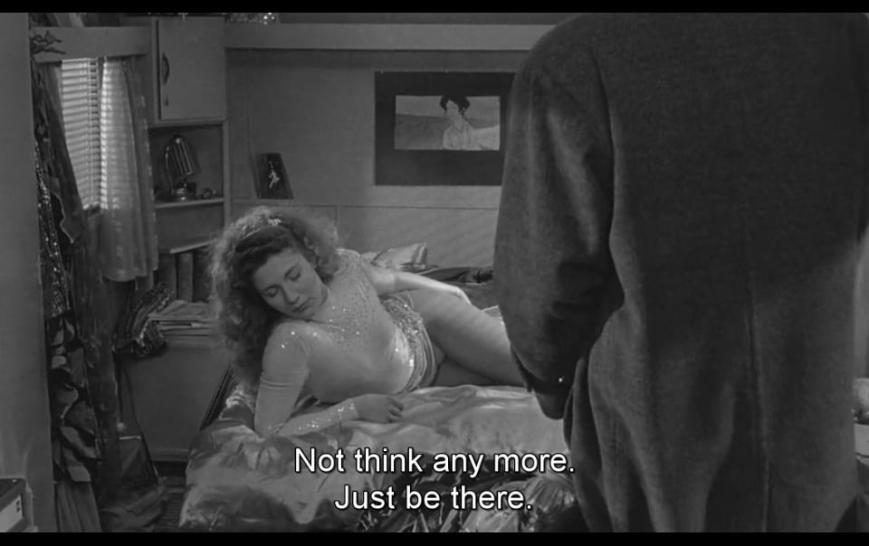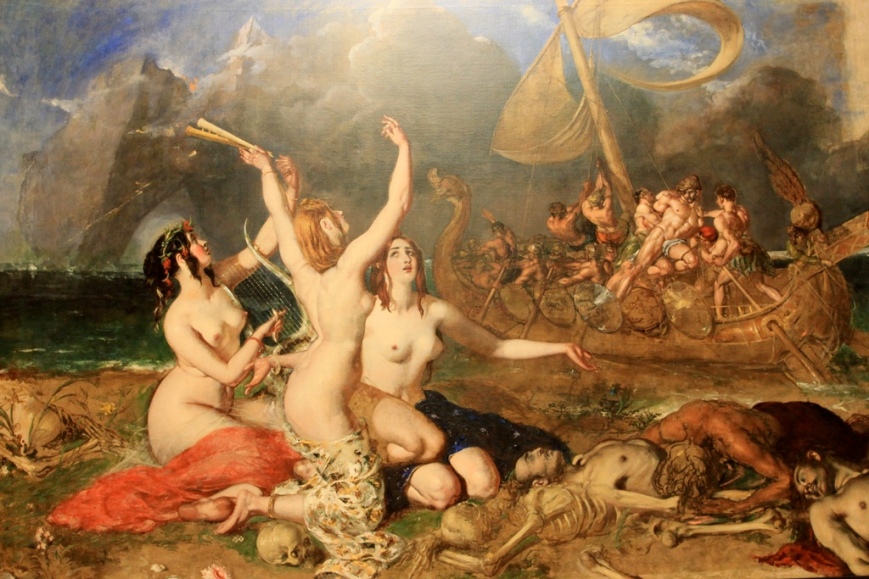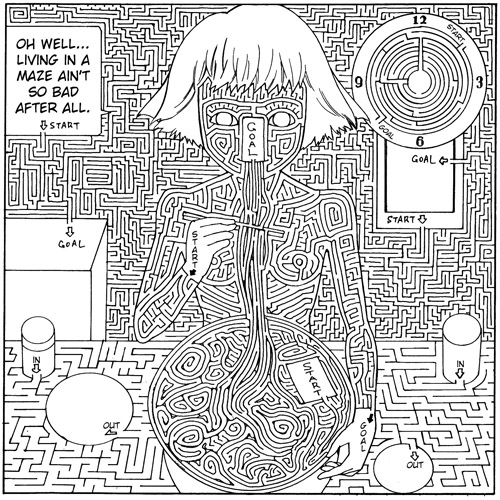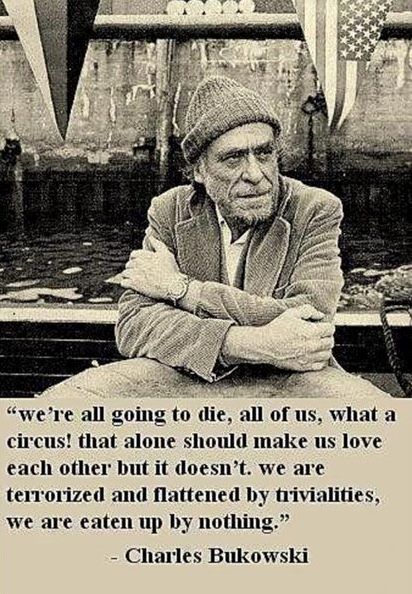Tag Archives: fear
john perkins on empire’s power tools
michael rosen on fascism (2014)
I sometimes fear that
people think that fascism arrives in fancy dress
worn by grotesques and monsters
as played out in endless re-runs of the Nazis.
Fascism arrives as your friend.
It will restore your honour,
make you feel proud,
protect your house,
give you a job,
clean up the neighbourhood,
remind you of how great you once were,
clear out the venal and the corrupt,
remove anything you feel is unlike you…
It doesn’t walk in saying,
“Our programme means militias, mass imprisonments, transportations, war and persecution.”
From HERE.
simone weil – contradiction
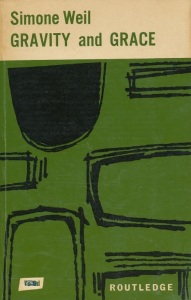 The contradictions the mind comes up against—these are the only realities: they are the criterion of the real. There is no contradiction in what is imaginary. Contradiction is the test of necessity.
The contradictions the mind comes up against—these are the only realities: they are the criterion of the real. There is no contradiction in what is imaginary. Contradiction is the test of necessity.
Contradiction experienced to the very depths of the being tears us heart and soul: it is the cross.
When the attention has revealed the contradiction in something on which it has been fixed, a kind of loosening takes place. By persevering in this course we attain detachment.
The demonstrable correlation of opposites is an image of the transcendental correlation of contradictories.
All true good carries with it conditions which are contradictory and as a consequence is impossible. He who keeps his attention really fixed on this impossibility and acts will do what is good.
In the same way all truth contains a contradiction. Contradiction is the point of the pyramid.
The word good has not the same meaning when it is a term of the correlation good-evil as when it describes the very being of God.
The existence of opposite virtues in the souls of the saints: the metaphor of climbing corresponds to this. If I am walking on the side of a mountain I can see first a lake, then, after a few steps, a forest. I have to choose either the lake or the forest. If I want to see both lake and forest at once, I have to climb higher. Only the mountain does not exist. It is made of air. One cannot go up: it is necessary to be drawn.
An experimental ontological proof. I have not the principle of rising in me. I cannot climb to heaven through the air. It is only by directing my thoughts towards something better than myself that I am drawn upwards by this something. If I am really raised up, this something is real. No imaginary perfection can draw me upwards even by the fraction of an inch. For an imaginary perfection is automatically at the same level as I who imagine it—neither higher nor lower.
What is thus brought about by thought direction is in no way comparable to suggestion. If I say to myself every morning: ‘I am courageous, I am not afraid’, I may become courageous but with a courage which conforms to what, in my present imperfection, I imagine under that name, and accordingly my courage will not go beyond this imperfection. It can only be a modification on the same plane, not a change of plane.
Contradiction is the criterion. We cannot by suggestion obtain things which are incompatible. Only grace can do that. A sensitive person who by suggestion becomes courageous hardens himself; often he may even, by a sort of savage pleasure, amputate his own sensitivity. Grace alone can give courage while leaving the sensitivity intact, or sensitivity while leaving the courage intact.
Man’s great affliction, which begins with infancy and accompanies him till death, is that looking and eating are two different operations. Eternal beatitude is a state where to look is to eat. That which we look at here below is not real, it is a mere setting. That which we eat is destroyed, it is no longer real.
Sin has brought this separation about in us.
The natural virtues, if we give the word virtue its authentic meaning, that is to say if we exclude the social imitations of virtue, are only possible as permanent attributes for someone who has supernatural grace within him. Their duration is supernatural.
Opposites and contradictories. What the relation of opposites can do in the approach to the natural being, the unifying grasp of contradictory ideas can do in the approach to God.
A man inspired by God is a man who has ways of behaviour, thoughts and feelings which are bound together by a bond impossible to define.
Pythagorean idea: the good is always defined by the union of opposites. When we recommend the opposite of an evil we remain on the level of that evil. After we have put it to the test, we return to the evil. That is what the Gita calls ‘the aberration of opposites’. Marxist dialectic is based on a very degraded and completely warped view of this.
A wrong union of contraries. The imperialism of the working class developed by Marxism. Latin proverbs concerning the insolence of newly-freed slaves. Insolence and servility are aggravated by each other. Sincere anarchists, discerning, as through a mist, the principle of the union of opposites, thought that evil could be destroyed by giving power to the oppressed. An impossible dream.
What then differentiates the right from the wrong union of opposites?
Bad union of opposites (bad because fallacious) is that which is achieved on the same plane as the opposites. Thus the granting of domination to the oppressed. In this way we do not get free from the oppression-domination cycle.
The right union of opposites is achieved on a higher plane. Thus the opposition between domination and oppression is smoothed out on the level of the law—which is balance.
In the same way suffering (and this is its special function) separates the opposites which have been united in order to unite them again on a higher plane than that of their first union. The pulsation of sorrow-joy. But, mathematically, joy always triumphs.
Suffering is violence, joy is gentleness, but joy is the stronger.
The union of contradictories involves a wrenching apart. It is impossible without extreme suffering.
The correlation of contradictories is detachment. An attachment to a particular thing can only be destroyed by an attachment which is incompatible with it. That explains: ‘Love your enemies… He who hateth not his father and mother…’
Either we have made the contraries submissive to us or we have submitted to the contraries.
Simultaneous existence of incompatible things in the soul’s bearing; balance which leans both ways at once: that is saintliness, the actual realization of the microcosm, the imitation of the order of the world.
The simultaneous existence of opposite virtues in the soul—like pincers to catch hold of God.
We have to find out and formulate certain general laws relating to man’s condition, concerning which many profound observations throw light on particular cases.
Thus: that which is in every way superior reproduces that which is in every way inferior, but transposed.
Relationships of evil to strength and to being; and of good to weakness or nothingness.
Yet at the same time evil is privation. We have to elucidate the way contradictories have of being true.
Method of investigation: as soon as we have thought something, try to see in what way the contrary is true.1
Evil is the shadow of good. All real good, possessing solidity and thickness, projects evil. Only imaginary good does not project it.
As all good is attached to evil, if we desire the good and do not wish to spread the corresponding evil round us we are obliged, since we cannot avoid this evil, to concentrate it on ourselves.
Thus the desire for utterly pure good involves the acceptance of the last degree of affliction for ourselves.
If we desire nothing but good, we are opposing the law which links real good to evil as the object in the light is linked to its shadow, and, being opposed to one of the world’s universal laws, it is inevitable that we should fall into affliction.
The mystery of the cross of Christ lies in a contradiction, for it is both a free-will offering and a punishment which he endured in spite of himself. If we only saw in it an offering, we might wish for a like fate. But we are unable to wish for a punishment endured in spite of ourselves.
__
1 This aphorism gives us the key to the apparent contradictions scattered throughout the work of Simone Weil: love of tradition and detachment from the past, God conceived of as the supreme reality and as nothingness, etc. These contradictory ideas are true on different planes of existence and their oppo- sition is smoothed out on the level of supernatural love. Reason discerns the two ends of the chain but the centre which unites them is only accessible to undemonstrable intuition. [Editor’s note.]
__
Excerpted from Simone Weil‘s Gravity and Grace. First French edition 1947. Translated by Emma Crawford. English language edition 1963. Routledge and Kegan Paul, London.
bright blue – weeping
An honest song about the violence of white fear, and sadly just as relevant as ever.
“wings of desire” – mirror scene
anne carson – the gender of sound
Madness and witchery as well as bestiality are conditions commonly associated with the use of the female voice in public, in ancient as well as modern contexts. Consider how many female celebrities of classical mythology, literature and cult make themselves objectionable by the way they use their voice.
For example, there is the heart-chilling groan of the Gorgon, whose name is derived from a Sanskrit word, *garg meaning “a guttural animal howl that issues as a great wind from the back of the throat through a hugely distended mouth”. There are the Furies whose high-pitched and horrendous voices are compared by Aiskhylos to howling dogs or sounds of people being tortured in hell (Eumenides). There is the deadly voice of the Sirens and the dangerous ventriloquism of Helen (Odyssey) and the incredible babbling of Kassandra (Aiskhylos, Agamemnon) and the fearsome hullabaloo of Artemis as she charges through the woods (Homeric Hymn to Aphrodite). There is the seductive discourse of Aphrodite which is so concrete an aspect of her power that she can wear it on her belt as a physical object or lend it to other women (Iliad). There is the old woman of Eleusinian legend Iambe who shrieks obscenities and throws her skirt up over her head to expose her genitalia. There is the haunting garrulity of the nymph Echo (daughter of Iambe in Athenian legend) who is described by Sophokles as “the girl with no door on her mouth” (Philoktetes).
Putting a door on the female mouth has been an important project of patriarchal culture from antiquity to the present day. Its chief tactic is an ideological association of female sound with monstrosity, disorder and death.
— From “The Gender of Sound”, in Glass, Irony and God. New Directions, 1995: pp 120-121
The brilliant Anne Carson presents a history of the gendered voice, from Sophocles to Gertrude Stein. She outlines what is at stake in our assumptions around sound, questioning whether the concept of ‘self-control’ is a barrier to acknowledging other forms of human order, feeding into wider debates on social order, both past and present.
Read the whole essay HERE.
the flying lizards – the window
Sometimes you fight for the world
Sometimes you fight for yourself
(Off the experimental collective’s eponymous album, released on Virgin in 1979, with vocals by Vivien Goldman.)
why i am so furious right now
By way of explaining some of the rage that is and will undoubtedly continue to be bubbling out on Fleurmach in the next while: someone very precious to me was ————————————————————————————————————————————————————————————————————————- CENSORED ON DEMAND FOR LEGAL REASONS —————————————————————————————————. And THAT is what makes me the angriest of all. It sends a clear message to her that keeping the peace is more important than honouring her truth. And it is emphatically NOT so.
man cleaning the cobra pit
This man does not give a fuck.
on being fully alive
We are motivated more by aversion to the unpleasant than by a will toward truth, freedom, or healing. We are constantly attempting to escape our life, to avoid rather than enter our pain, and we wonder why it is so difficult to be fully alive.
― Stephen Levine, from A Year to Live: How to Live This Year as If It Were Your Last
eaten up by nothing
“i knew these two people …”
Harry Dean Stanton and Nastassja Kinski in Wim Wenders’ Paris,Texas (1984).
“one ventures from home on the thread of a tune”
A child in the dark, gripped with fear, comforts himself by singing under his breath. He walks and halts to his song. Lost, he takes shelter, or orients himself with his little song as best he can. The song is like a rough sketch of a calming and stabilizing, calm and stable, center in the heart of chaos. Perhaps the child skips as he sings, hastens or slows his pace. But the song itself is already a skip: it jumps from chaos to the beginnings of order in chaos and is in danger of breaking apart at any moment. There is always sonority in Ariadne’s thread. Or the song of Orpheus. … One launches forth, hazards an improvisation. But to improvise is to join with the World, or meld with it. One ventures from home on the thread of a tune.
~ Deleuze & Guattari, in “1837: Of the Refrain”, from A Thousand Plateaus. Capitalism and Schizophrenia. London: Continuum, 1987. pp. 343-4
anaïs nin on unbearable lightness
“I am the most tired woman in the world. I am tired when I get up. Life requires an effort I cannot make. Please give me that heavy book. I need to put something heavy like that on top of my head. I have to place my feet under the pillows always, so as to be able to stay on earth. Otherwise I feel myself going away, going away at a tremendous speed, on account of my lightness… As soon as I utter a phrase my sincerity dies, becomes a lie whose coldness chills me. Don’t say anything, because I see that you understand me, and I am afraid of your understanding. I have such a fear of finding another like myself, and such a desire to find one! I am so utterly lonely, but I also have such a fear that my isolation be broken through, and I no longer be the head and ruler of my universe. I am in great terror of your understanding by which you penetrate into my world; and then I stand revealed and I have to share my kingdom with you.”
~ Anaïs Nin
malaria! – your turn to run
“so. many. times.”
Malaria! Super 8 movie as Videoclip from the ’80s with original Berlin Kreuzberg Material.
Leftover footage from the Geld Video shoot. Made by made by: D.Hormel, B.Bühler, G.Gut.
vertigo
Cape Town’s Good Film Society presents this Alfred Hitchcock masterpiece, on at the Labia Theatre at 20h15 tonight.
Recently voted in Sight and Sound’s definitive poll as the greatest film ever made (the only film to surpass Orson Welles’ Citizen Kane in many a decade), come to this Sunday’s one-off screening and decide for yourself if it’s worthy of the accolade!
Vertigo is the spellbinding tale of an ex-policeman with a fear of heights, Scottie Ferguson (James Stewart), who is hired by an old friend to investigate his wife (Kim Novak). But it’s no ordinary case – the woman is suspected of being possessed by the malignant spirit of a suicide victim. As the mystery leads to a spiral into paranoia and obsession, Scottie is forced to encounter the most painful truth: He has fallen in love with a woman who may not exist. Stylistically breathtaking, intellectually complex and profound, the film is a startlingly experimental exploration of desire, a psychological spider-web woven with unusual compassion by the master of nightmares. With this touchstone of psychological thrillers – his most personal masterpiece – Hitchcock defined not only a genre, but an entire era of filmmaking and art. Continue reading


